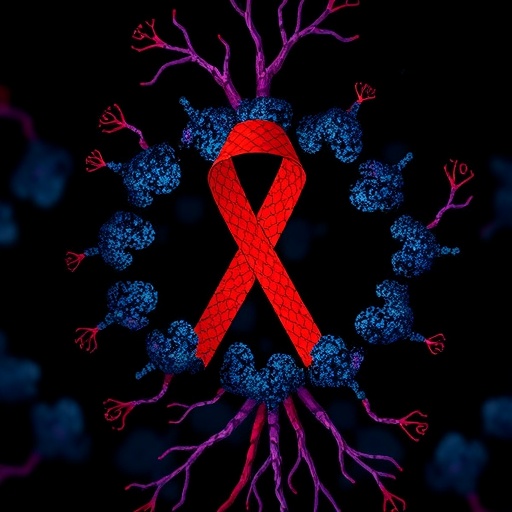A revolutionary multi-institutional initiative spearheaded by researchers at Weill Cornell Medicine has secured an ambitious five-year, $14.9 million grant from the National Institute of Allergy and Infectious Diseases, a division of the National Institutes of Health. This funding will empower scientists to develop innovative strategies designed to eradicate latent HIV within infected individuals. Distinguished by its personalized medicine framework, this research effort aims to transform the longstanding battle against HIV into a definable, effective cure, moving beyond the current paradigm of lifelong viral suppression.
Currently, an estimated 40 million individuals worldwide live with HIV, a chronic condition that can be managed but not cured with existing treatments. The widely prescribed antiretroviral therapy (ART) efficiently suppresses HIV replication in the bloodstream but fails to address the virus’s ability to embed itself silently within certain immune cells. These infected cells harbor latent HIV reservoirs—viral DNA integrated into the genome of host cells, mostly CD4+ T lymphocytes—that evade immune detection and standard treatments. This viral dormancy poses one of the greatest challenges in HIV research, as these cells can reignite systemic infection if ART is interrupted.
The newly launched research program, known as Innovative Strategies for Personalized Immunotherapies and Reservoir Eradication (INSPIRE), will be helmed by Dr. Brad Jones, an associate professor specializing in microbiology and immunology within Weill Cornell Medicine’s Division of Infectious Diseases. Dr. Jones brings a rigorous scientific approach to dissecting the biology of HIV latency and is renowned for his pioneering work that previously secured a $28.5 million NIH grant targeting fundamental mechanisms governing the viral reservoir.
“This award confirms the crucial relevance of our research and underscores Weill Cornell Medicine’s emergence as a global epicenter for HIV cure research,” Dr. Jones stated. His team’s approach leverages advanced cellular and molecular techniques to untangle the complexities of the viral reservoir, aiming to eventually neutralize or eliminate these cells while restoring effective immune surveillance.
HIV’s lifecycle includes integration of its genetic material into host DNA, predominantly within CD4+ T cells. These cells can then transition into a latent state characterized by minimal to no viral protein expression, rendering the infected cells nearly invisible to the body’s immune defenses and unaffected by ART. Such latent cells are not only scarce but exhibit significant heterogeneity, evolving over time and differing markedly among patients. Understanding this diversity forms a core scientific challenge addressed by the INSPIRE program.
Central to this initiative is an exhaustive characterization of the HIV reservoir’s cellular landscape. The research team will use samples already collected from individuals living with HIV, employing state-of-the-art single-cell sequencing and phenotyping technologies. By delineating distinct reservoir subsets and identifying their molecular signatures and immune vulnerabilities, researchers aim to pinpoint precise targets for therapeutic intervention.
Building upon this refined knowledge, INSPIRE will explore cutting-edge therapeutic strategies inspired by advances in cancer immunotherapy. Unlike conventional approaches, the team intends to tailor treatments using a patient’s own immune effector cells, such as T cells and natural killer (NK) cells, engineered to recognize and eradicate virus-harboring cells. This personalized immunotherapy approach seeks to overcome the limitations posed by reservoir heterogeneity and variable immune responses.
Dr. Marina Caskey, a professor at The Rockefeller University and adjunct faculty at Weill Cornell Medicine, co-leads the INSPIRE program and emphasized the importance of individualized therapies in achieving durable HIV remission. “Because the reservoir and immune responses are unique to each individual, we believe tailored immunotherapies have the greatest potential to deliver sustained ART-free control or even permanent eradication of the virus,” she explained.
The researchers are also pioneering innovative approaches involving B cells—the antibody-producing arm of the immune system. Rather than relying solely on traditional vaccination, INSPIRE investigators plan to engineer and reinfuse autologous B cells that can continuously secrete broadly neutralizing antibodies (bNAbs) targeting diverse HIV strains. These bNAbs are capable of binding to multiple viral variants and neutralizing infectious particles, representing a potent weapon to suppress and potentially diminish the latent reservoir.
This approach addresses a critical challenge in HIV vaccine development, as conventional vaccines have struggled to elicit sufficiently potent and durable bNAb responses. By introducing B cells programmed to secrete these antibodies directly, the team hopes to establish a long-lived immunological barrier that controls viral rebound in the absence of ART.
Dr. Jones highlighted the significance of sustained bNAb presence, stating, “Maintaining broadly neutralizing antibodies in the bloodstream over long periods should effectively suppress the HIV reservoir and prevent viral resurgence without the need for continuous antiviral drugs. This might even reduce reservoir size over time, marking a critical step toward curative interventions.”
INSPIRE’s intricate research design combines immunology, virology, genomics, and bioengineering, reflecting the interdisciplinary nature necessary to tackle the complexities of HIV cure research. By integrating personalized immunotherapy with novel antibody strategies, the team aims not only to suppress but to fundamentally alter the landscape of HIV treatment, redefining what is possible for millions living with this virus.
The program benefits from collaborations that extend beyond Weill Cornell Medicine, involving key partners at The Rockefeller University, George Washington University, and components of the NIH itself. This collaborative network ensures a broad application of expertise and resources, maximizing the translational potential of the research toward clinical implementation.
As the field of HIV research pivots from lifelong viral suppression toward eradication and durable remission, initiatives like INSPIRE stand at the forefront of scientific innovation. Their success could usher in a new era of precision medicine for infectious diseases, where personalized immunotherapies close the chapter on HIV/AIDS as a global health threat.
Subject of Research: HIV Latency and Personalized Immunotherapy for HIV Cure
Article Title: Innovative INSPIRE Program Advances Personalized Immunotherapies to Eradicate Latent HIV Reservoirs
Web References:
https://vivo.weill.cornell.edu/display/cwid-rbjones
https://www.rockefeller.edu/our-scientists/research-affiliates/5615-marina-caskey/
Image Credits: Weill Cornell Medicine
Keywords: Human immunodeficiency virus, HIV research, Personalized medicine, Clinical medicine, HIV latency, Immunotherapy, Broadly neutralizing antibodies, Viral reservoirs, T cells, B cells, Natural killer cells, HIV cure strategies




